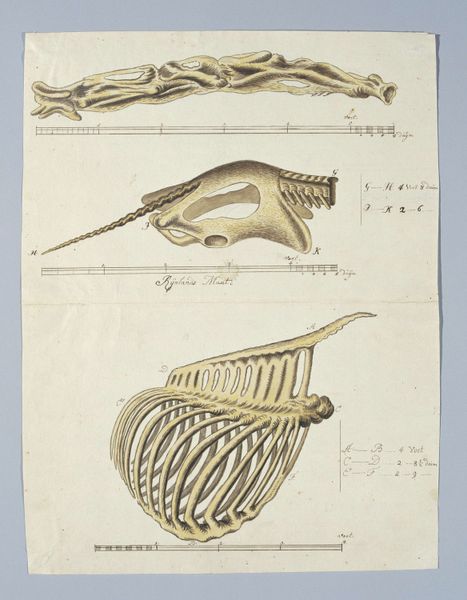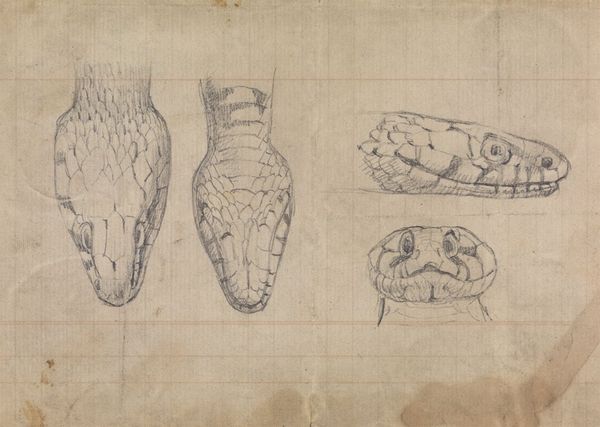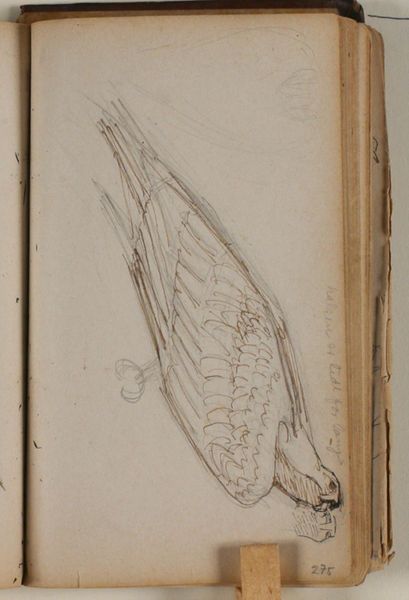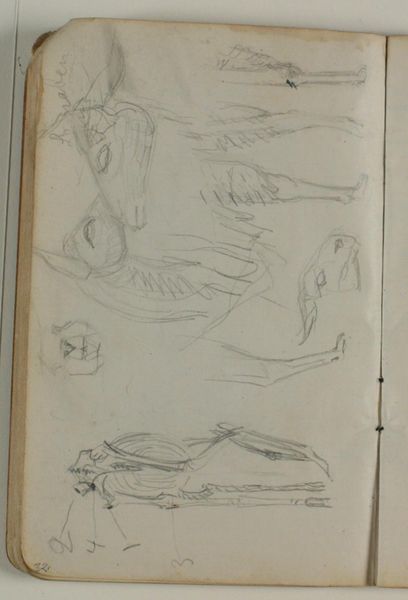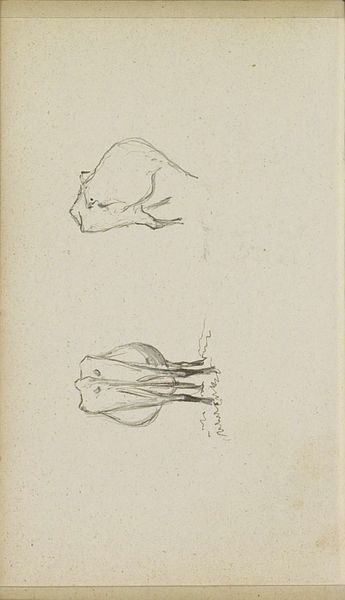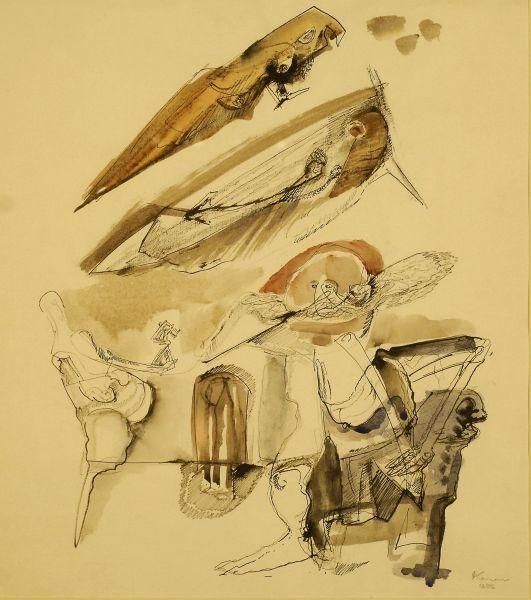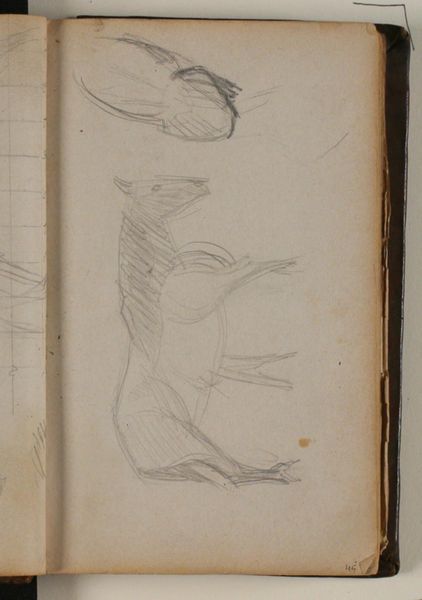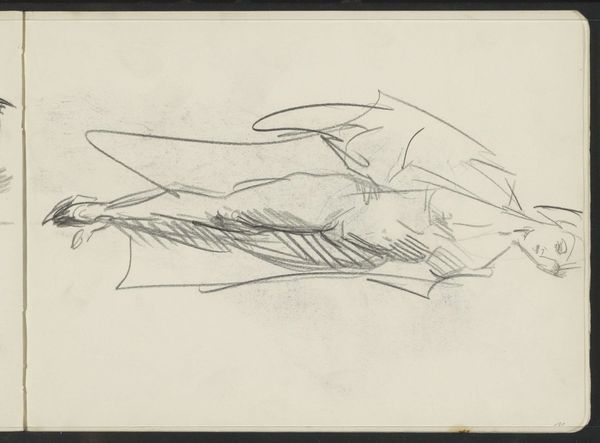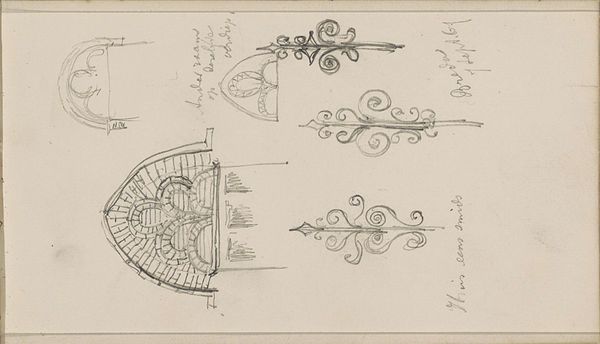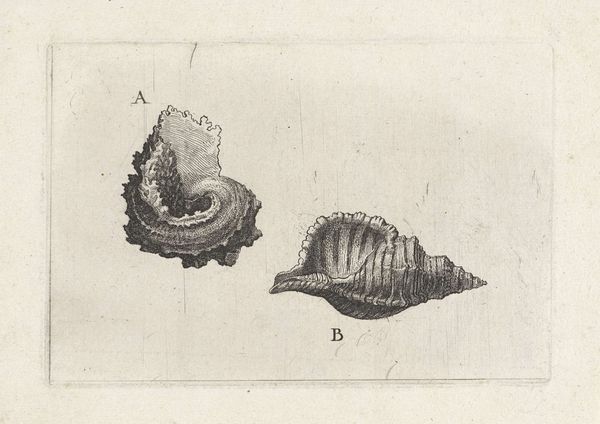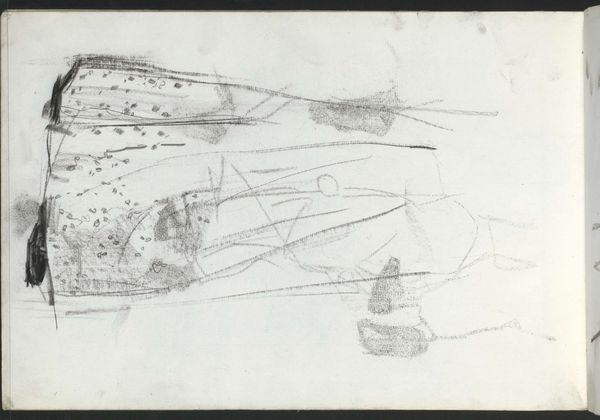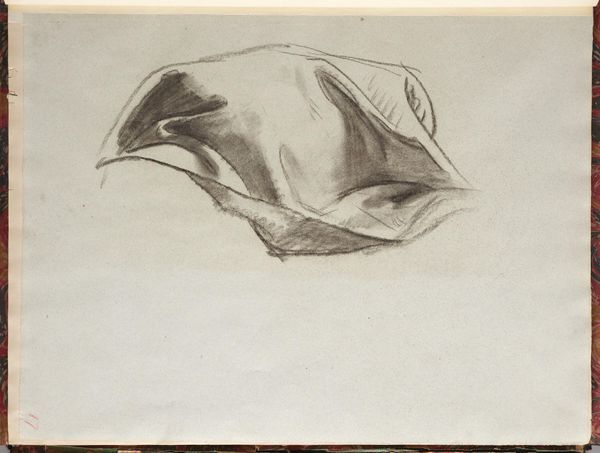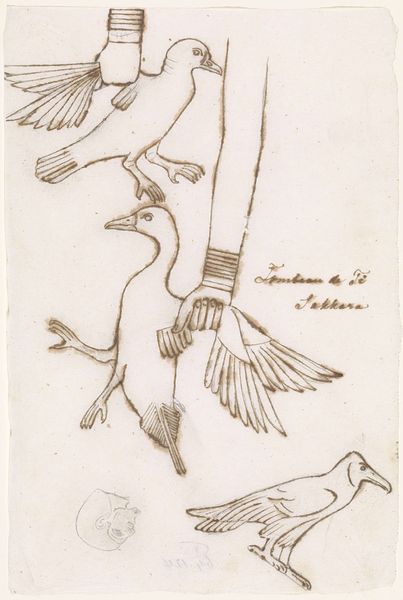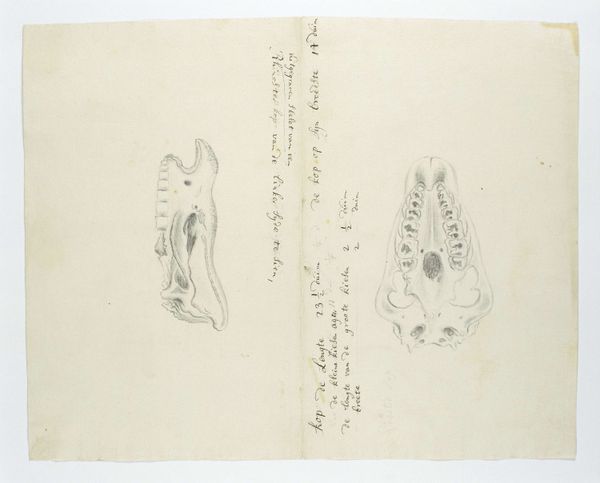
drawing, paper, ink, pencil
#
drawing
#
paper
#
form
#
ink
#
pencil
#
line
#
academic-art
#
realism
Dimensions: height 660 mm, width 480 mm, height 401 mm, width 270 mm, height mm, width mm
Copyright: Rijks Museum: Open Domain
Robert Jacob Gordon's 'Giraffa camelopardalis,' presents us with a meticulously rendered study of giraffe anatomy. It’s not merely a scientific illustration, but a cultural artifact imbued with the symbolic weight of discovery and understanding. The giraffe's structure, from its ossicones – those horn-like protuberances – to its elongated neck vertebrae, connects it to an ancient bestiary, reminiscent of mythological creatures. Consider the unicorn, its single horn a symbol of purity and power. We can see how the giraffe skull’s nasal horn aligns with this. The animal's skeletal form evokes a sense of vulnerability and the cyclical nature of existence. The rhythmic repetition of the ribs, the delicate yet sturdy structure of the vertebrae – such images echo the arches of Roman aqueducts, themselves symbols of civilization and endurance. It’s as if Gordon is showing us not just the animal, but also the eternal architecture of life itself. This scientific, yet evocative, portrayal engages us on a subconscious level, reminding us of our own mortality and the enduring patterns of nature.
Comments
No comments
Be the first to comment and join the conversation on the ultimate creative platform.
